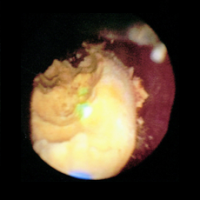About one in 10 Australians will develop kidney stones at some stage in their life. Some people find out about their kidney stones when they develop pain, and some stones are found incidentally on scans and X-Rays.
Acute Renal Colic
Kidney stones may cause severe pain (acute renal colic) if they pass into the ureter and block the kidney.
If you have severe pain, you should call an Ambulance on 000 or attend your nearest Emergency Department.
Mr Stephen Lindsay provides comprehensive care for patients with kidney stones. We accept urgent referrals from your GP or from an Emergency Department doctor. Please note that there is no Emergency Department at St John of God Hospital in Bendigo.
Treatment Options
Conservative
Small kidney stones usually pass spontaneously without the need for surgery. But some stones are too big to pass, and need surgery to remove the stone and relieve the obstruction.
• strong pain relief
• increased fluids
• strain your urine to catch the stone
• medication may help the stone to pass spontaneously
Lithotripsy (or ESWL)
Kidney stones can be broken up using sound waves. Under an anaesthetic, a Lithotripsy machine generates sound waves which pass through the body, and are focused onto the kidney stone.
This is a day case procedure. The stone fragments pass out of the body in the urine. You will need pain relief and should increase your fluid intake to flush out the stone fragments.
Endoscopic surgery (PCNL, Ureteroscopy and Pyeloureteroscopy)
Telescopes can be passed into the urinary tract to reach the kidney stone from below, or through the back (a percutaneous nephrolithotomy or PCNL).
Small stones can be captured in a “basket” and removed. Larger stones need to be broken up (usually using Holmium Laser or other stone breaking equipment) and the fragments removed.

